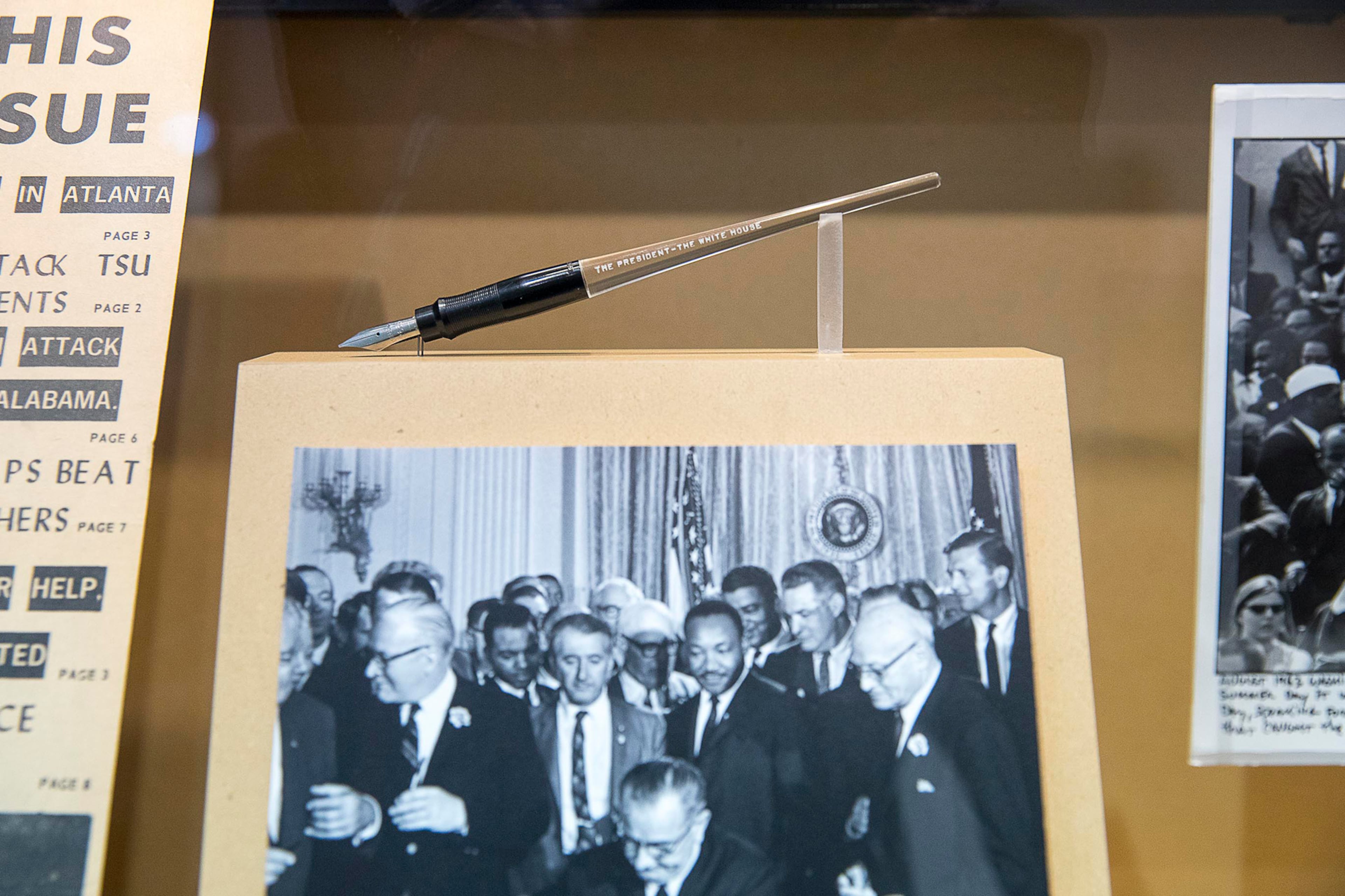Hartsfield-Jackson debuts Rep. John Lewis tribute wall





















The world's busiest airport debuted an exhibit wall in tribute to civil rights icon U.S. Rep. John Lewis in the domestic terminal Monday.
The $250,000 installation along a walkway between the domestic terminal atrium and the arrivals hall includes artifacts, videos and photos from the life of Lewis, a Freedom Rider who spoke at the 1963 March on Washington, was beaten by police during the 1965 march across the Edmund Pettus Bridge in Selma, and has been a Georgia congressman for more than 30 years.

Lewis made national news when he said he planned to skip Donald Trump's 2017 inauguration because he didn't consider Trump "a legitimate president." Trump then criticized Lewis in a tweet as "All talk, talk, talk — no action or results. Sad!" and derided the congressman's Atlanta district as being "in horrible shape and falling apart (not to mention crime infested)."
During remarks at a ribbon-cutting event Monday, Lewis made a light reference to one of Trump’s campaign promises, saying: “Thank you for putting up this unbelievable — should I call it a wall? I don’t believe in building walls. I believe in building bridges.”

The Atlanta City Council passed a resolution two years ago creating a task force to examine how to honor Lewis, which led to the renaming of Freedom Parkway to John Lewis Freedom Parkway and the airport-funded tribute wall entitled " John Lewis — Good Trouble."
“We see the name John Lewis as synonymous with freedom,” said Councilman Andre Dickens, who authored the legislation and called the airport exhibit an “international tribute” that will be seen by travelers from around the world.

David Vogt, art program manager at Hartsfield-Jackson International Airport, said more people may view the airport’s artwork in a two-week period than will visit the New York Museum of Modern Art in a year.
Lewis, 79, said when he was young, "I asked about those signs that said white men, colored men, white women, colored women," and his mother told him: "Boy, that's the way it is. Don't get in trouble." But after learning about Martin Luther King Jr. and Rosa Parks, "I was inspired to get in trouble," Lewis said. "And I've been getting in trouble ever since. Good trouble."

Lewis said he hopes the exhibit will inspire people “to stand up, to speak up and speak out, and to never become bitter or to hate.”
The tribute wall has charred wood paneling in the style of a Japanese technique called shosugiban. “The process is to take wood, burn it till it’s charred, and then use a wire brush to clear it off, and the result is a stronger piece of wood that’s impervious to insects and more beautiful,” said Gary Lee Super, who designed the tribute wall. “I think that’s a perfect metaphor for the civil rights movement.” He said the wood is also reminiscent of “small, modest rural farmhouses throughout the South.”
Artifacts in the exhibit include a pen that President Lyndon B. Johnson used to sign the Civil Rights Act and gave to Lewis, the Medal of Freedom that President Barack Obama awarded to Lewis, and a program from Obama’s inauguration that he signed for Lewis with the words: “Because of you John, Barack Obama.”

At the top of the Lewis tribute wall is a 22-foot-long painting by artist Alexi Torres showing a chronological arrangement of images and icons from Lewis’s life, bordered by riveted steel, which Super said is a nod to the Edmund Pettus Bridge.
At the bottom of the wall are quotes from civil rights songs. And the background music on the video of speeches and remarks by Lewis is the Morehouse College Glee Club’s rendition of “We Shall Overcome.”
Super, who said he watched TV coverage of the Bloody Sunday conflict on the Edmund Pettus Bridge when he was a teenager, called the exhibit a “tribute to the man who changed the way I see the world.”




